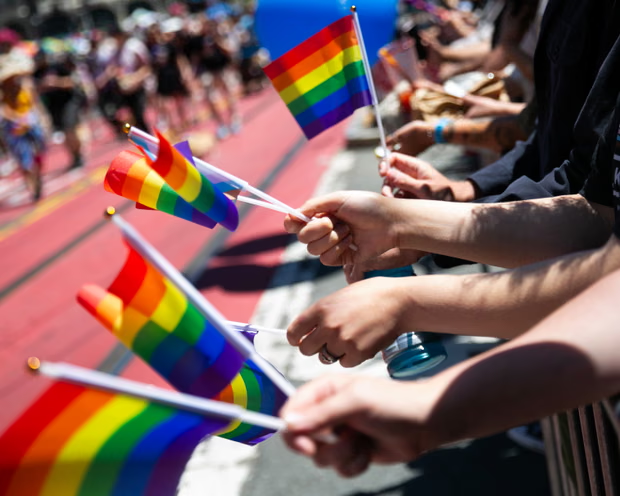Federal authorities in Texas have arrested a man accused of threatening to shoot participants at a pro-LGBTQ+ Pride parade in Abilene. The suspect, Joshua Cole, allegedly made the threats online in retaliation for the killing of political activist Charlie Kirk.
Court documents indicate that on September 18, the FBI’s Dallas field office was contacted by Abilene police regarding online threats from a local resident. Investigators said Cole had used a Facebook account under the name “Jay Dubya” to post messages threatening violence at the Abilene Pride parade scheduled for September 20.
In one post, Cole allegedly wrote, “Fk their parade, I say we lock and load and pay them back for taking out Charlie Kirk,” referring to Kirk, who was shot dead on September 10 at Utah Valley University. Prosecutors in Utah have alleged that Tyler Robinson was responsible for Kirk’s death, reportedly motivated by a perception of Kirk’s hostility toward LGBTQ+ individuals.
Cole’s other alleged messages reportedly included references to parade participants using derogatory language and suggested he wanted to intimidate attendees. One post read, “Theres only like 30 of em we can send a clear message to the rest of them,” followed by, “come on bro let’s go hunting fairies,” invoking a slur against LGBTQ+ people.
FBI Special Agent Sam Venuti stated in a sworn affidavit that investigators confirmed the “Jay Dubya” account belonged to Cole. Efforts to reach him at his workplace revealed that he had recently quit under tense circumstances. Co-workers described him as a “hot head,” according to Venuti.
Local police, with Venuti present, conducted a traffic stop on Cole. When approached about his online activity, Cole reportedly acknowledged understanding the reason for the discussion and did not appear surprised. He was detained on the scene.
During questioning, Cole reportedly admitted to owning a firearm, operating the Facebook account, and posting the threatening messages. He allegedly agreed that a reasonable person could interpret his comments as a threat. Cole also reportedly stated that he opposed the Pride event but denied plans to carry out any violence. Venuti noted that the threats were specific and targeted at parade participants, describing them as unconditional rather than hypothetical.
Based on the evidence, the FBI determined there was probable cause to arrest Cole for violating federal law prohibiting threatening communications. If convicted, he could face up to five years in prison, according to the Cornell University Legal Information Institute.
Cole appeared briefly at a preliminary hearing, where a judge ordered him to remain in custody pending further proceedings. An attorney listed for Cole did not respond to requests for comment.
The Abilene Pride Alliance issued a statement assuring the community that safety remains a top priority. They praised the swift response from authorities, noting that their actions reflected a commitment to maintaining a safe, inclusive, and celebratory environment at Pride events.
Authorities emphasized that the arrest underscores the seriousness of threats targeting LGBTQ+ communities, particularly in the wake of high-profile incidents. Law enforcement officials have increasingly monitored online activity to prevent attacks motivated by hatred or political grievances.
While the Trump administration previously threatened action against groups opposing Charlie Kirk, it has not publicly commented on Cole’s arrest. The situation highlights ongoing concerns over targeted threats against public gatherings and underscores the role of federal authorities in protecting vulnerable communities.
Investigators continue to examine Cole’s online activity and connections, ensuring that no further risks to public safety remain. The swift intervention serves as a reminder of the legal consequences for making threats, even when no physical action occurs.
The arrest also reflects heightened vigilance surrounding Pride events, particularly in areas where political or social tensions may lead to violence. Authorities reaffirmed that they are committed to protecting attendees and preventing incidents that could escalate into real-world harm. The case serves as a cautionary example of how online threats can result in federal charges, emphasizing the accountability individuals face when targeting marginalized communities.







